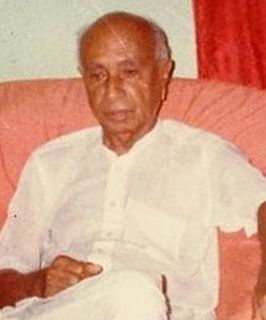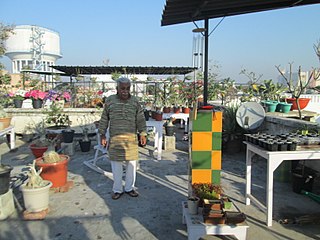 W
WAbu Ma'shar Al-Sindi, (Latin) Abulmazar (Arabic) ابو ماشرالسندي : was a scholar of Hadith literature from Mansura, Sindh now the part of Pakistan.
 W
WAkbar Laghari is Pakistani writer of Urdu and Sindhi Languages including secretary to Minister Govt. of Sindh, belongs to Sindh Pakistan.
 W
WAtta Muhammad Bhanbhro, also spelled as Atta Mohammad Bhambhro, was a Pakistani writer, translator, poet, historian, lawyer, and the founder of Hoshu, a banned rebellious magazine. He wrote more than one hundred books on Sindhi literature, history and civilisation besides contributing to indus script through his writings. Sometimes, he is referred to as archaeologist for his archaeological contribution excavated in Sindh.
 W
WShah Abdul Latif Bhittai was a Sindhi Philosopher, Sufi scholar, mystic, saint, and poet, widely considered to be the greatest Muslim poet of the Sindhi language. He is also known as the poet of Sindh.
 W
WHaleem Brohi was a prominent Pakistani author and journalist, active in the Sindhi language. He is considered the second greatest satirist is Sindhi literature after Ali Mohammad Brohi.
 W
WAmir Bux Shar was a notable Sindhi-language poet and writer of Pakistan. In addition to his writing, he was also a social worker.
 W
WAttiya Dawood is a Sindhi poet, writer, feminist and activist. She was born in Moledino Larik She has been hailed as one of the most important feminist Sindhi writers of her time. Attiya uses her poetry to highlight the oppression of women in Sindhi society in the name of tradition. She has been writing poetry since 1980.
 W
WMuhammad Usman Diplai, popularly known as Diplai, was a figure of Sindhi literature and journalism. He was awarded Pride of Performance for his works by President of Pakistan General Pervez Musharraf on 23 March 2004.
 W
WHotchand Molchand Gurbakhshani was a leading academician, an educationist and scholar who is well known for his annotated translation of the Sufi poetic compendium Shah Jo Risalo. He served as Principal of D.J. Sindh College Karachi. He also served as the first president of Sindh Historical Society.
 W
WDr. Abdul Jabbar Junejo was a Sindhi writer, poet, novelist, story-writer, critic, linguist, historian and musicologist of Sindh, Pakistan.
 W
WMolvi Ahmed Mallah was born on first February 1877 in village Kundi, Deh Lohan, Badin District. His father's name was Nangio Mallah. He was a moderate Islamic Mullah and had translated Quran in Sindhi in poetic way. Mallah was a folk and national poet of Sindh. He died on 19 July 1969.
 W
WAyaz Latif Palijo is a politician, lawyer, activist, writer and teacher. Palijo is the president of Qomi Awami Tahreek, central convener and founder of the Sindh Progressive Nationalist Alliance (SPNA), one of the founders and central Secretary General of Grand Democratic Alliance (GDA). Since 2007, he has represented the left, objecting to the division of the southeastern Pakistan province of Sindh.
 W
WPir Hadi Hassan Bux Shah Jilani, commonly known by the title Hadi (1846–1900), was an eminent Sufi saint and poet from Sanghar in modern-day Pakistan who belonged to Qadiriyya Sufi order. He was born at Dargah Bhuro Bhawan Shah Jilani near Hyderabad Sindh and lived most of his life in Duthro Sharif Sanghar Sindh after traveling through Sindh to spread Iaspam and Sufism. He wrote his poetry in many languages, mostly in Sindhi but also in Urdu, Persian and other languages. The annual Urs of Hadi take place in the month of Jumada al-Awwal in Duthro Sharif Sanghar.
 W
WPir Sadar al-Din (Sadardin) or Pir Sadruddin was a fourteenth-century Nizari Ismaili da'i and is regarded as the founder of the Khoja Nizari Ismaili community, also called Satpanth.
 W
WZulfiqar Shah is a civil rights activist, journalist and writer of Sindhi origin. He was forced by the Pakistan Army to unlawfully leave the country and close down The Institute for Social Movements, Pakistan in May 2012. He resettled in Nepal, where the UNHCR approved him for refugee status. In Kathmandu, he began freelancing with newspapers and websites on the issues of Pakistan, particularly concerning Sindh and the restive province of Balochistan. He was insurrected in his house in Kathmandu and was given heavy metal poison by the Pakistani intelligence agency ISI with local facilitation; however he was rescued by local doctors. He was forced to leave Nepal, thus he left for Pakistan in December 2013. In Pakistan, he again was persecuted and threatened to be killed. He went India for medical treatment on 11 February 2013, where he was not only denied appropriate health treatment at the behest of the Pakistan High Commission in New Delhi, but was also harassed by high commission officials. He, along his wife Fatima Shah, gave a protest sit-in for 285 days near the Parliament of the Republic of India in defiance of the threats against his life committed by the Pakistan High Commission and its facilitation by the Indian authorities.
 W
WAmar Sindhu is Pakistani author and professor from Sindh, Pakistan.
 W
WGhulam Murtaza Syed, known as G.M Syed was a prominent Sindhi politician, who is known for his scholarly work, passing only constitutional resolution in favor of the establishment of Pakistan from British India's Sindh Assembly in 1943. Later proposing ideological groundwork for separate Sindhi identity and laying the foundations of Sindhudesh movement. He is regarded as one of the founding fathers of modern Sindhi nationalism.
 W
WSmt. Sundri Uttamchandani was a noted Indian writer. She wrote mostly in Sindhi language. She was married to progressive writer A. J. Uttam.
 W
WHarish Hansraj Vaswani was a Sindhi writer, poet and critic. and academic. He was a professor of Political Science and English literature. He is known as a pioneer of new Sindhi poetry and he was influential writer of Sindhi literature. He was awarded Sahitya Akademi award in 1987.